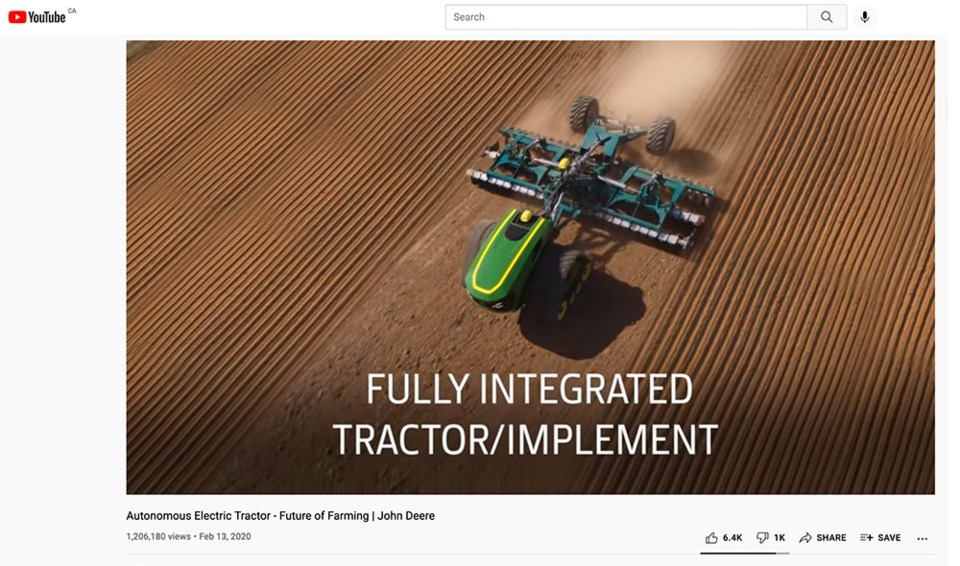The manufacturing partners, after all, had a pretty good gig going. Revenue for Deere’s first three quarters this fiscal year was an estimated US$32.7 billion, up 11 percent over the pre-pandemic 2019, and net income was a record $4.7 billion, up 84 percent.Deere’s UAW workforce was thriving, too; since Nov. 1, 2020, the number of union jobs at Big Green had risen an astonishing 19 percent.
So imagine the shock of company and UAW negotiators when, like a lightning bolt, 90 percent of the rank-and-file union members summarily rejected the proposed contract. Both were shocked again four days later when the 10,000 Deere union workers walked off the job and onto a picket line.
On Oct. 18, the same day the two sides reportedly headed back to the bargaining table, the Wall Street Journal saw the standoff — and other strikes that had recently emerged — as just a new round in the age-old labour-capital fight: “Union… workers demand more from their employers and companies struggle with labour shortages and snarled supply chains.”
By most corporate measures, however, Deere and its shareholders aren’t struggling even when compared to last year’s COVID-weakened numbers: 2021 results show the company’s revenue up 29 percent, net income up 106 percent, and net profit up an obese 60 percent.
That swift recovery made Deere a Wall Street darling. On March 20, 2020, the company’s shares were $112 apiece. Less than 14 months later, on May 7, 2021, shares hit a stratospheric $394.
Prices have pulled back a bit since, but on Oct. 19, trading closed at $343 per share, still up a walloping 28 percent for the year.
One of that rise’s biggest beneficiaries is one of Deere’s biggest shareholders, Cascade Investments, Microsoft founder Bill Gates’ investment sidecar. According to the May 6 online edition of thewealthadvisor.com, “Cascade owned more than 31 million shares of the farm equipment maker,” worth about $10.4 billion today.
Deere isn’t Cascade’s only farm-linked investment. This past May it was widely reported that the then-married Bill and Melinda Gates owned “242,000 acres of farmland (mostly in the Â鶹´«Ã½AV) worth ‘more than $690 million.’”
Farmers and ranchers continue to see Deere as the premium, and premium-priced, farm equipment manufacturer in the United States. Investors and Deere, however, have a more expansive view of its lawn and garden, farm, forestry, landscaping, and highway equipment.
In a five-minute video on its website, the company repeatedly noted how its rapidly advancing technology, not diesel-fuelled horsepower, will assist Deere customers around the world to make better, faster decisions to “optimize operations” and maximize profits.”
That positioning has caught the attention of other investors like ARKQ, an ETF, or exchange-traded fund, “that seeks long-term growth… by investing in… autonomous technology and robotics companies….”
ARKQ’s biggest holding is Tesla, Inc., the world’s leading electric vehicle maker.
Interestingly, its second largest holding, at $180 million, is Trimble, Inc., the Silicon Valley firm that specializes in geospatial engineering. To get an idea of what it does, think anything GPS-driven or GPS-connected, such as tractors, combines, and construction equipment.
Another large ARKQ holding is, yep, Deere; it owns $76 million of Deere stock.
In short, Wall Street is betting that tomorrow’s biggest, most autonomous, meaning robotic, farm equipment manufacturer will be Deere. In fact, YouTube is packed with videos of several autonomous versions of sparkling green and driverless John Deere tractors.
And, hard as it might be to believe, some are electric and none have cabs, seats, steering wheels, or drivers.
As such, tomorrow’s farming, like today’s manufacturing, will feature even more robots and even fewer people. Neither, after all, can go on strike.
Alan Guebert is an agricultural commentator from Illinois.




